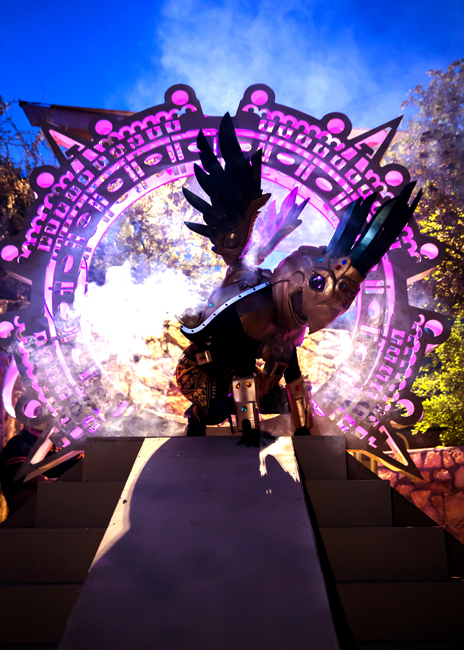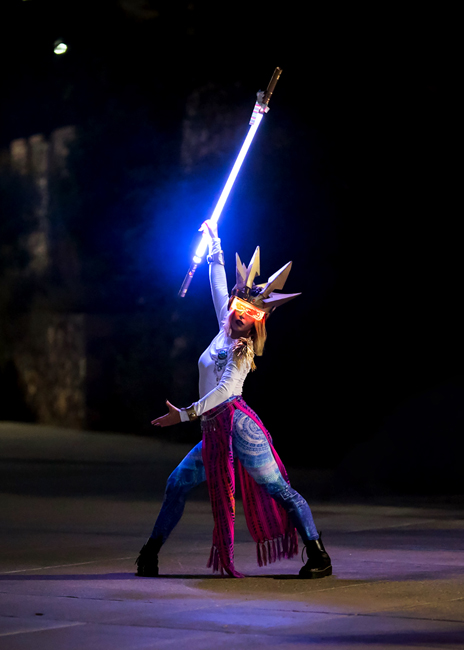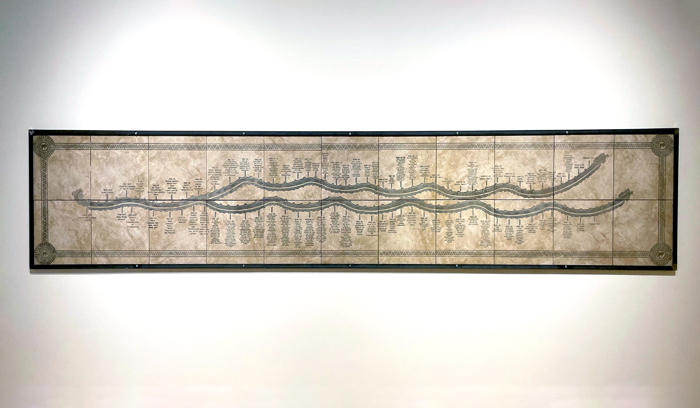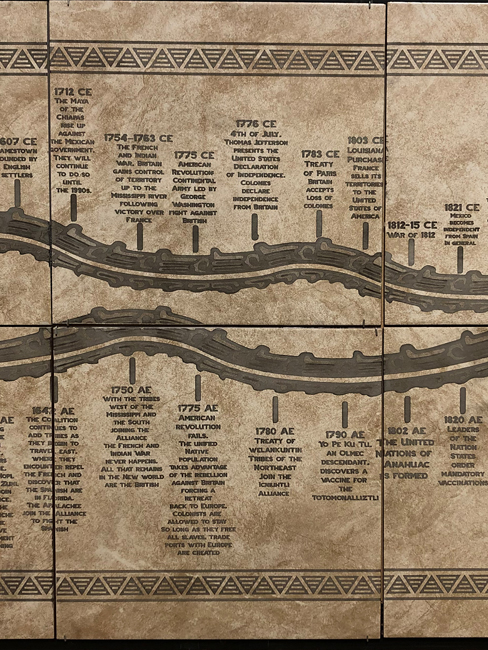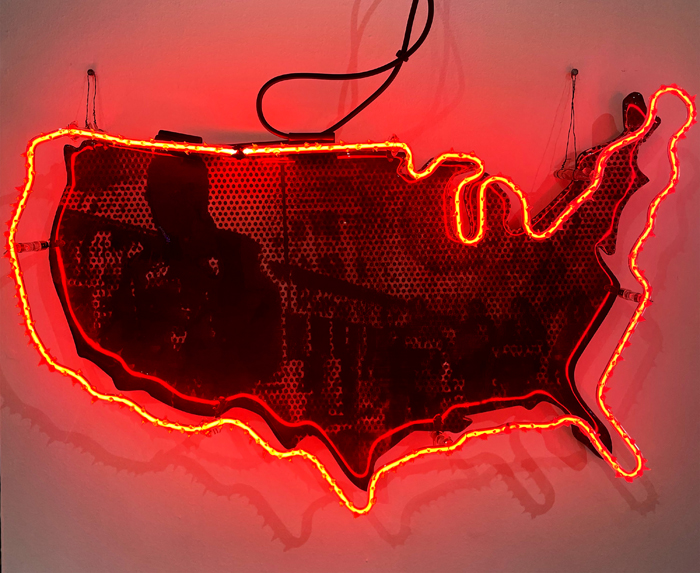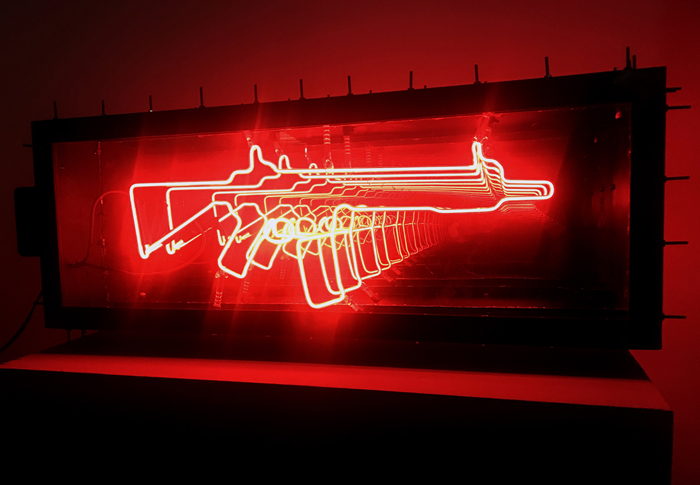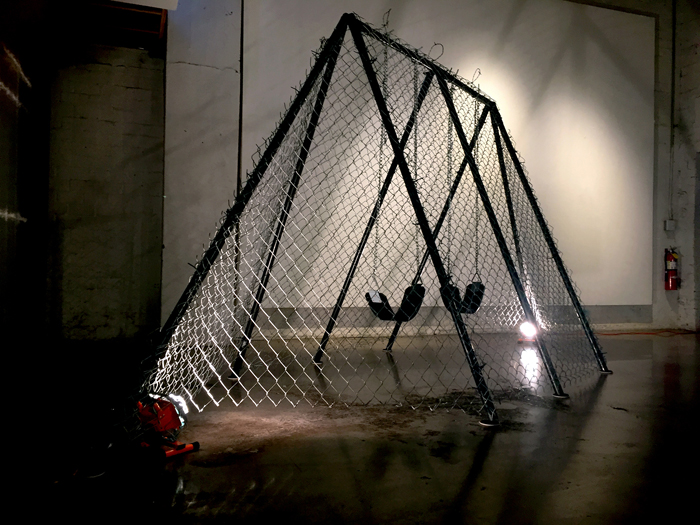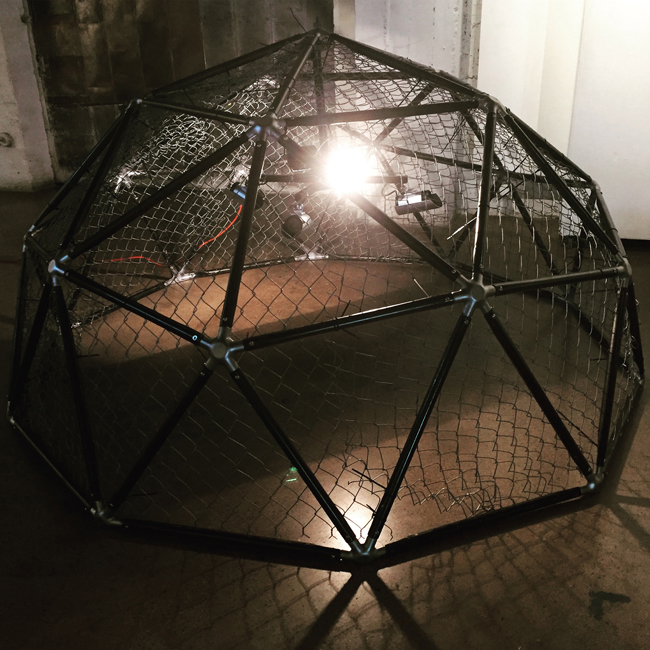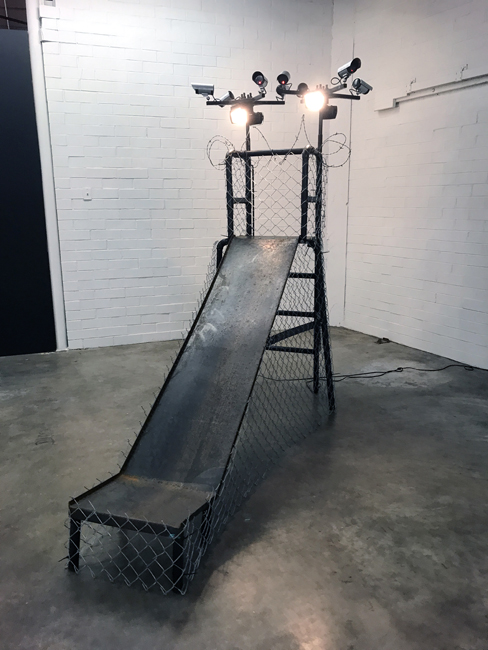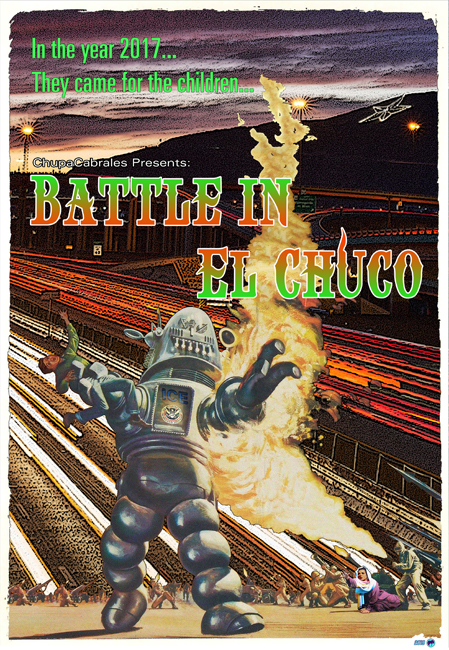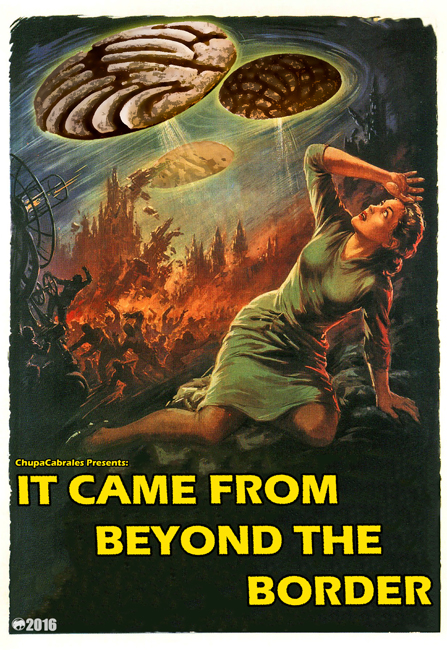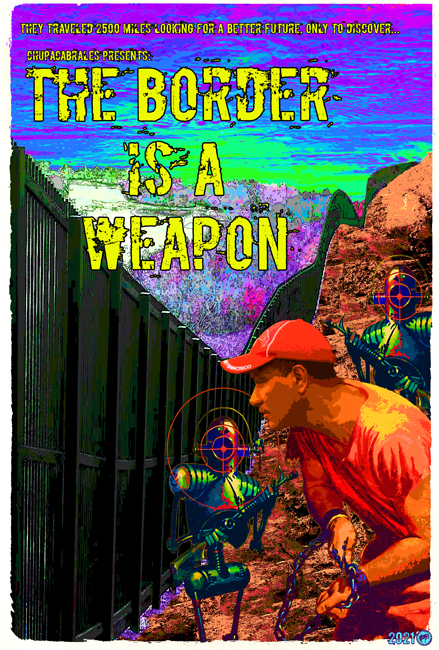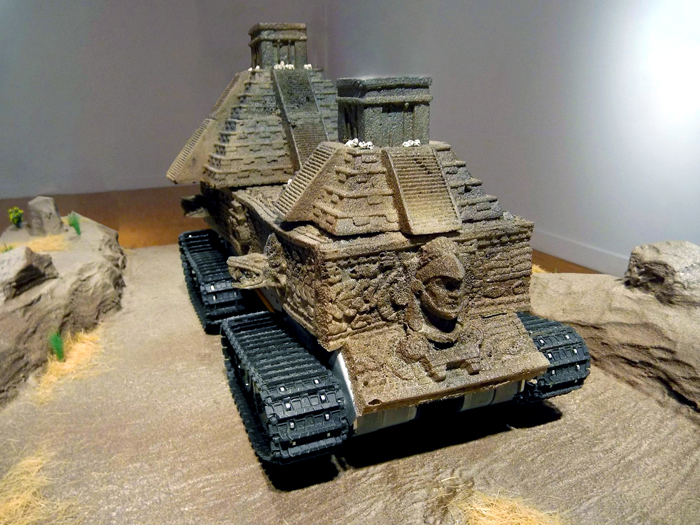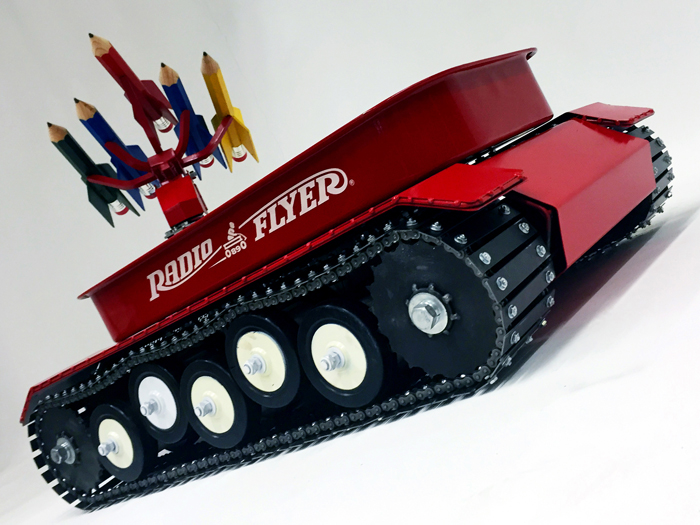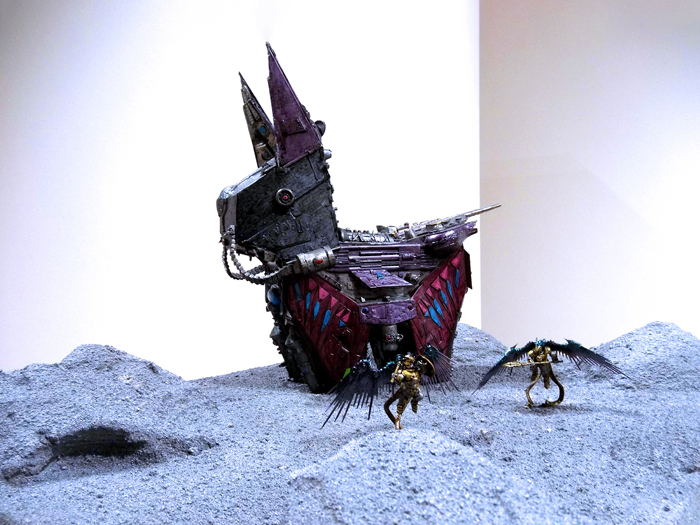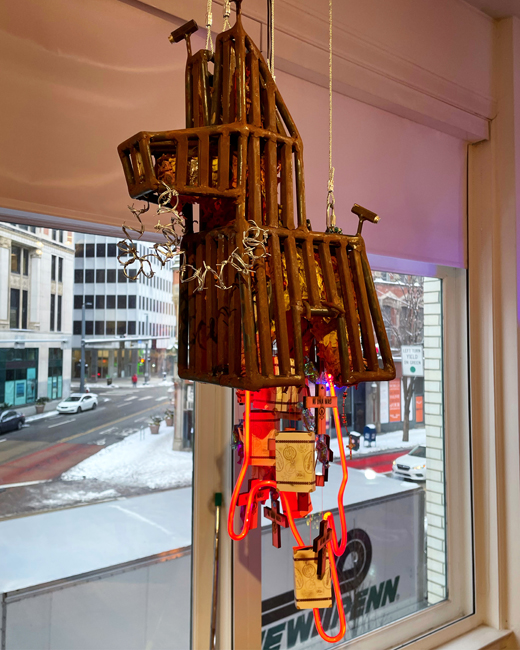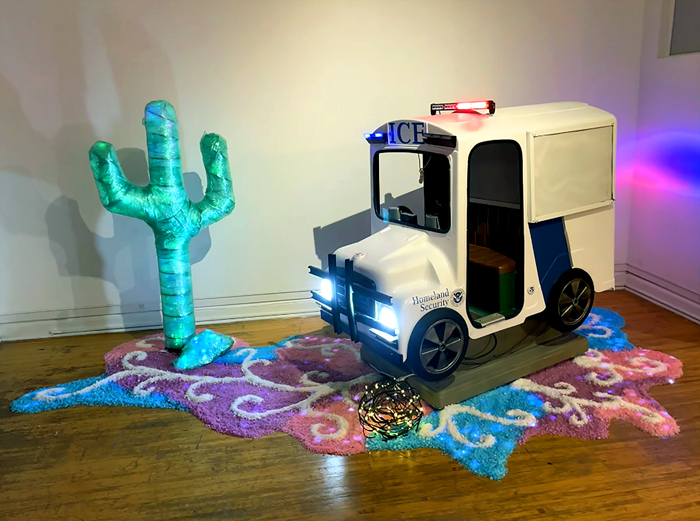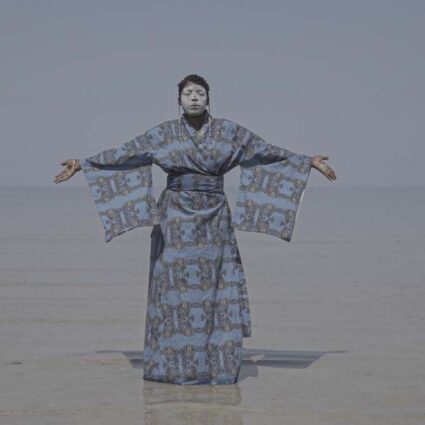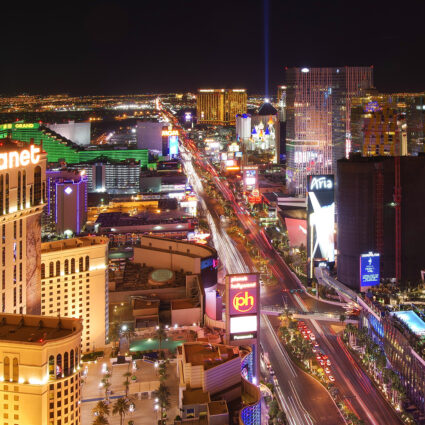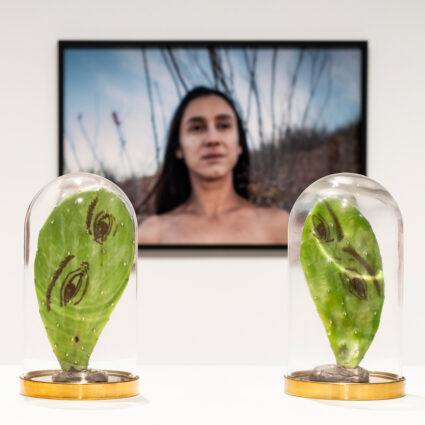Angel Cabrales, a devotee of science, sci-fi, and his own cultural heritage based in El Paso, creates alternate worlds that are more playful than the serious and broken one we live in.

Angel Cabrales is a part-time resident of other worlds. In his practice, the artist re-envisions our modern day through a lens fine-tuned by science, science fiction, cultural studies, and history. A look at his portfolio reveals a broad spectrum of creations ranging from fantastical gadgetry to installations and performances. Technical savvy, whimsical curiosity, and the passion of a historian all mark Cabrales’s work.
In describing himself, Cabrales emphasizes that he was “never a conventional artist.” A typical Gen-X art student, Cabrales’s inclination was toward message-dictating medium—and for him, the more varied the iterations of message and medium, the better.
“I almost got kicked out because they didn’t understand why I was working with so many materials and so many topics,” explains Cabrales, who says he received mixed responses to his approach during his graduate studies at the University of North Texas in Denton. “They wanted me to focus on just one, and I said, ‘There is a focus, it’s just broader.’”
Cabrales’s approach has endured. His most recent projects are influenced by his travel while on academic leave from the University of Texas at El Paso, where he teaches sculpture. The native El Pasoan, ever-craving the knowledge of his own cultural heritage, set his sights on Mexico. He toured Oaxaca, Toluca, and Mexico City, where he visited archeological ruins and investigated native technologies.
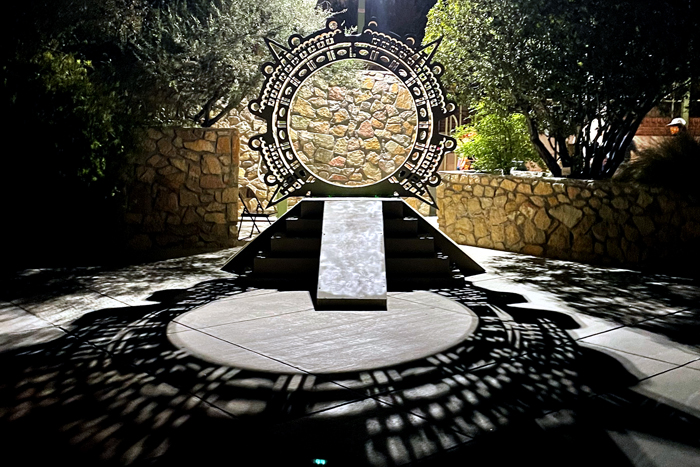
“In 2000 BC, the Olmecs were vulcanizing rubber and hybridizing corn,” Cabrales zealously shares. “And in the 1840s, they had these amazing aqueducts and sewage systems and ceramic piping, and the way they were filtering water was incredible. I was just in awe. It was nothing like the mess we make today to do the same thing. And the Maya were the first civilization to come up with the concept of zero in their math. If we had continued on with that from their starting point, how far ahead would our mathematics be today?”
Cabrales, who roots his practice in science, builds his art upon a foundation of “what ifs.” His pieces exist as embodiments of imagined realities where progress and human development have branched into entirely different worlds from the version we know today. His participation in the 2021 exhibition MX 21: Resistance, Reaffirmation and Resilience at the Mexi-Arte Museum in Austin, Texas, provides a concrete example.
The artist exhibited Axihuical (El Paralelo), a sixteen-foot ceramic tile mural with a fascia featuring a laser-cut narrative of parallel timelines that mirror each other in undulating contrast. One is a story of colonization as we know it. The other is a tale of a failed colonization and the subsequent rise of a pan-American “United Nations of Anahuac” distinguished by its priority on renewable energy technologies. “The UNA is happening somewhere, in some time,” Cabrales says. “We just can’t see it.”
Cabrales manifests his work through a spirit of playfulness. Art making is recreation for the artist, as evidenced in his object-based creations. See his putt-putt golf course, children’s playground, array of would-be toys, and sci-fi movie posters of fantasy tales that he crafts in his “downtime.” Like the swing set from his Juegos Fronteras (Border Games) installation, his works come to life from within a pendulum-style motion between solemnity and play.
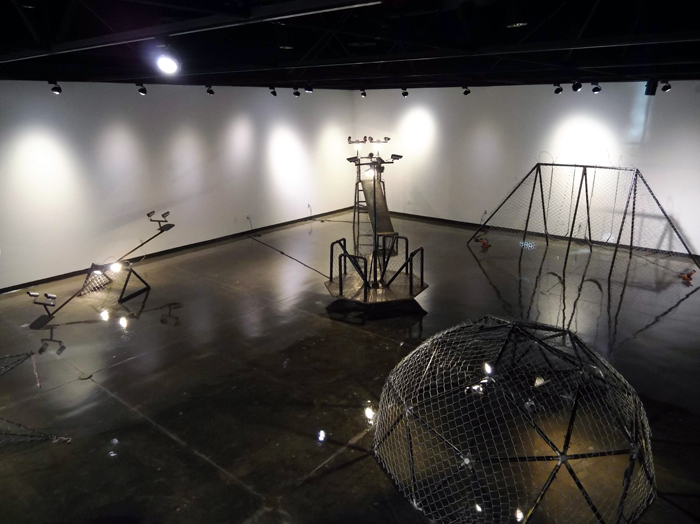
“Juegos Fronteras was conceptualized by the current issues on immigration in the Southwest as well as the rest of the nation,” Cabrales explains. “It shows metaphorical restrictions placed upon our sister cities by the placement of borders in an area dependent on the free flow of cultures. In restricting the flow for safety and security, the playground is rendered useless for those outside and cripples the ability of those inside to truly experience the freedom and joys the grounds encourage.”
Upcoming for the prolific Cabrales is his participation in the exhibition Milenio: Chicanismos of Tomorrow, curated by Bianca Camarillo for the conference “Latinx Visions: Speculative Worlds in Latinx Art, Literature, and Performance” at the University of New Mexico in Albuquerque. Milenio is scheduled to run from March 10 through March 29, 2023, at the Harwood Art Center’s 6th Street Studio in downtown Albuquerque.
